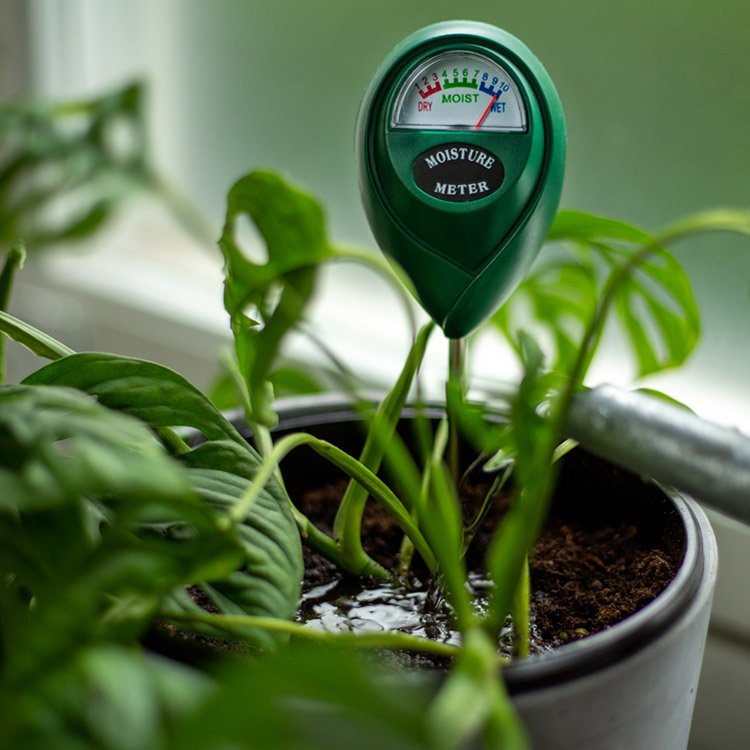Moisture Meter Reviews: Contrasting the very best Versions for Expert and DIY Usage
Moisture Meter Reviews: Contrasting the very best Versions for Expert and DIY Usage
Blog Article
The Ultimate Guide to Dampness Meters: A Comprehensive Summary and How They Can Conserve You Money
Wetness meters offer as vital tools in finding and keeping an eye on moisture web content in products, assisting in avoiding expensive problems and guaranteeing the high quality of items. Understanding the nuances of various kinds of dampness meters, their applications, and the potential cost-saving benefits they supply can be a game-changer for experts and businesses alike.
Kinds Of Dampness Meters
Different kinds of dampness meters are available for various applications in numerous sectors. One usual kind is the pin-type moisture meter, which measures the electrical resistance between 2 pins put right into a product. This kind is ideal for wood, drywall, and other building materials. Pinless moisture meters, on the other hand, use electro-magnetic sensor plates to check a bigger location without triggering damages to the material's surface. Moisture Meter. These meters are ideal for quickly evaluating moisture levels in large locations such as walls and floors.

Furthermore, there are also specialized dampness meters made for details materials like grain, soil, or hay. These meters give precise wetness readings customized to the distinct residential properties of the material being tested. Infrared wetness meters gauge the thermal homes of a product to establish its dampness material non-invasively, making them useful for applications where pin or pinless meters might not appropriate. Understanding the various types of wetness meters offered can help markets choose the most appropriate tool for their certain moisture dimension requirements.

Benefits of Utilizing Dampness Meters
Dampness meters use important benefits in properly evaluating and keeping an eye on dampness levels in diverse materials and atmospheres (Moisture Meter). Among the key advantages of using wetness meters is the avoidance of possible damages triggered by excess moisture. By discovering and addressing high moisture degrees early on, moisture meters help to avoid mold development, rot, and architectural damage in buildings, conserving both money and time on repairs. Furthermore, moisture meters help in ensuring the top quality of products throughout construction or manufacturing procedures. By accurately gauging moisture content, these tools help maintain the honesty of wood, drywall, concrete, and other materials, decreasing the danger of problems or failures.
In addition, making use of dampness meters can bring about boosted energy performance. By determining locations with high moisture levels, such as leakages or poor insulation, changes can be made to enhance energy preservation and minimize utility prices. In agricultural setups, wetness meters play an important role in maximizing plant yields by making it possible for farmers to check soil moisture levels and make educated irrigation decisions. On the whole, the benefits of making use of moisture meters span across numerous industries, offering cost-efficient options and advertising far better high quality control practices.
How to Select the Right Dampness Meter
When picking a dampness meter, it's crucial to make sure that the meter is appropriate for the specific product you will certainly be testing. Various products have varying electrical properties that can influence dampness readings, so picking a meter created for your material is essential for exact results. By carefully examining these elements, you can choose a moisture meter that fulfills your requirements and provides exact moisture dimensions for your projects.
Correct Methods for Dampness Meter Usage

Cost Savings Via Wetness Meter Applications
How can the tactical usage of dampness meters lead to considerable cost financial savings across numerous markets? In the agriculture sector, wetness meters help in figuring out the ideal time for gathering crops, protecting against excess or over-drying moisture that can influence the final item's quality.
Likewise, in construction, wetness meters aid stop pricey damages by finding moisture degrees in structure materials, such as timber or concrete, which can cause architectural issues if not addressed without delay. By determining trouble areas early, contractors can take restorative measures to prevent substantial repair work or substitutes, inevitably conserving time and money.
Additionally, in the food handling market, moisture meters are vital for checking item top quality and ensuring compliance with security guidelines. By properly measuring moisture content in food, makers can stop wasting, keep quality, and reduce waste, resulting in considerable expense financial savings. In general, the strategic application of wetness meters is a valuable financial investment that can cause substantial expense reductions and boosted performance advice across different sectors.
Final Thought
Finally, moisture meters are important tools for measuring and spotting moisture degrees in different materials. By making use of the ideal wetness meter and complying with correct strategies, individuals can successfully stop costly problems triggered by excess wetness. Buying a high quality wetness meter can result in substantial expense savings in the lengthy run by determining prospective issues beforehand and making it possible for punctual removal. Ultimately, dampness meters are necessary instruments for maintaining the honesty and durability of materials and frameworks.
Dampness meters serve as indispensable tools in detecting and monitoring moisture material in products, helping in preventing expensive damages and making sure the quality of products. Infrared wetness meters gauge the thermal properties of a product to determine its wetness web content non-invasively, making them useful for applications where pin or pinless meters may not be ideal.Moisture meters supply invaluable benefits in accurately monitoring and assessing moisture levels in diverse products and environments. In agricultural settings, wetness meters play a vital duty in maximizing crop yields by discover here enabling farmers to monitor soil wetness levels and make notified irrigation decisions.In final thought, wetness meters are useful devices for determining and spotting dampness degrees in numerous materials.
Report this page